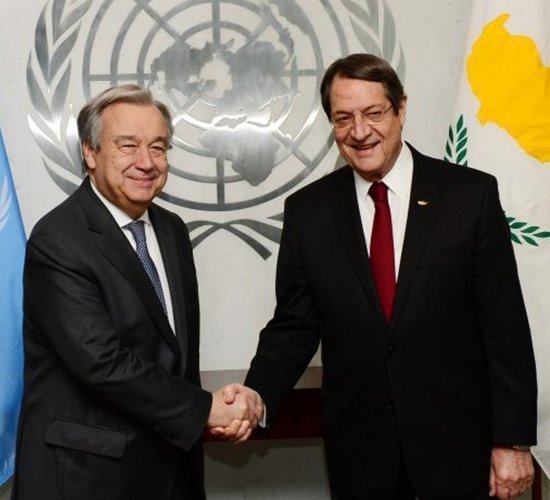About Cyprus
Cyprus Map
Cyprus, officially the Republic of Cyprus, is an island country in the Eastern Mediterranean and the third largest and third most populous island in the Mediterranean. Cyprus is located in Western Asia, south of Turkey, west of Syria and Lebanon, northwest of Israel, north of Egypt, and southeast of Greece.
Location
Cyprus, the third largest island in the Mediterranean Sea, lies at the crossroad of Europe, Africa, and Asia. In addition, Cyprus is close to the busy shipping and air routes linking Europe with the Arab World and the Far East, representing a strategic hub for business activities in the region.
Its total area is 9.251 sq. km (3.572 sq. miles), comparable in size to that of Lebanon, Puerto Rico, Connecticut in the USA, the Land of Hessen in Germany, and Dordogne in France.
The island is two hours ahead of Greenwich meantime, seven hours ahead of New York, seven hours behind Tokyo, and in the same time zone as Athens.
“Cyprus’ geographical position is a key point to three continents, and therefore, an ideal centre for international business.”
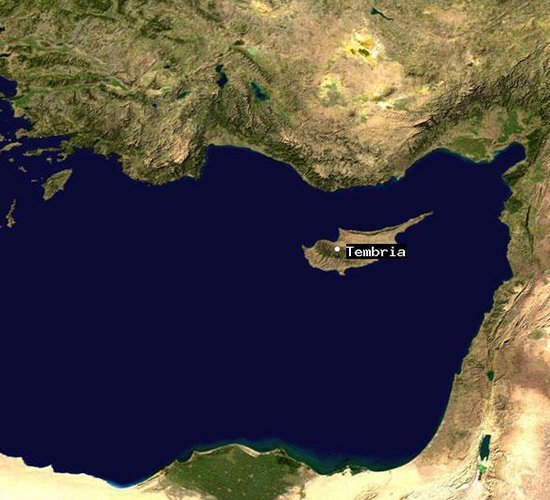


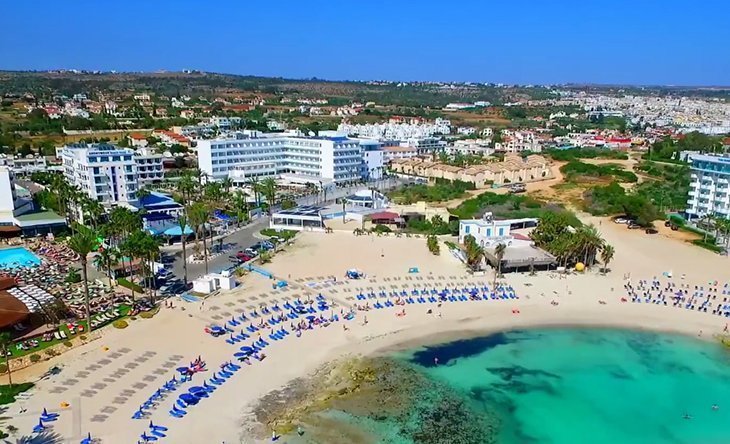

Climate
Cyprus has a pleasant climate with dry summers and mild winters, enjoying about 300 days of sunshine. The rainy season is confined to the period between November and March. In January, the coldest month, minimum and maximum mean temperatures are 6°C and 13°C respectively, while in August, the hottest month, the corresponding minimum and maximum temperatures are 21°C and 36°C.
History
Cyprus, according to Mythology, is the birthplace of the Greek goddess of love and beauty, Aphrodite. The island is both an ancient land, with eleven thousand years of history and a young independent republic since 1960. Its strategic location, positioned in the northeastern corner of the Mediterranean and at the meeting point of great civilizations, has been one of the critical factors influencing the course of the island’s history throughout the centuries.
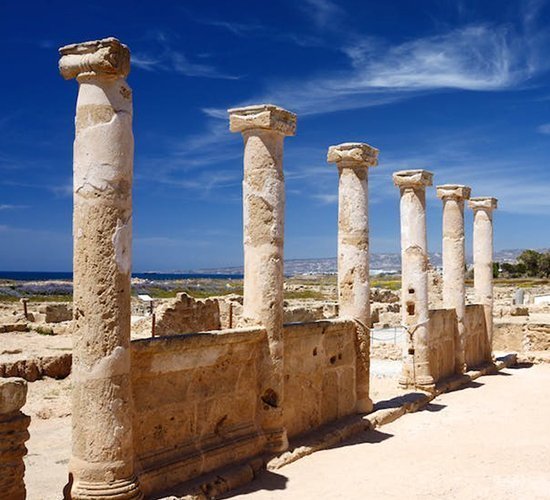
Population
The estimated total population of Cyprus is 818.200 based on the 2001 census of population, out of which 79,1% belong to the Greek Cypriot community, 10,7% to the Turkish Cypriot community and 10,2% are foreigners residing in Cyprus. The official languages of the Cyprus Republic are Greek and Turkish. In addition, English is widely spoken and extensively used in commerce and Government.

Infrastructure
Cyprus is well-served by sea, air and telecommunications connectivity. Due to its advanced telecommunications network and the superb regional and global connectivity on offer, the island is considered as one of the most important telecommunication hubs in the Eastern Mediterranean and the Middle East region. This is also enhanced by an extensive submarine fibre optic cable network, and access to major satellite systems.
In addition, Cyprus’ role as a regional commercial and business centre, coupled with the increasing tourist traffic, has led to the development of a wide network of air routes offering excellent connections with Europe, Africa and Asia. The country’s two international airports are situated near Larnaca and Paphos.
The multi-purpose ports of Limassol and Larnaca are the country’s main sea gateways for seaborne cargo and passenger traffic. Both ports have turned into important regional warehouse and distribution centres. Finally, the island has developed an advanced road system with 4 lane highways linking all central destinations. Indicatively, the motorway density ratio of Cyprus is 28,6km /1.000km2 (2001 figures), while the corresponding average ratio of the European Union for the same year was 14,3km /1.000km2.

Government & Administration
Cyprus became an independent Republic in 1960, adopting a governmental structure modeled on Western democracies. The Head of State is the President of the Republic, elected by universal suffrage for a five-year term of office. The council of Ministers, appointed by the President, constitutes the main executive body of the Republic.
Legislative power rests with the House of Representatives, elected for a five year term. A multi-party system is in operation, while the electoral system is based on proportional representation. Cyprus has an efficient civil service, with highly trained personnel, a considerable percentage of which holds academic qualifications.
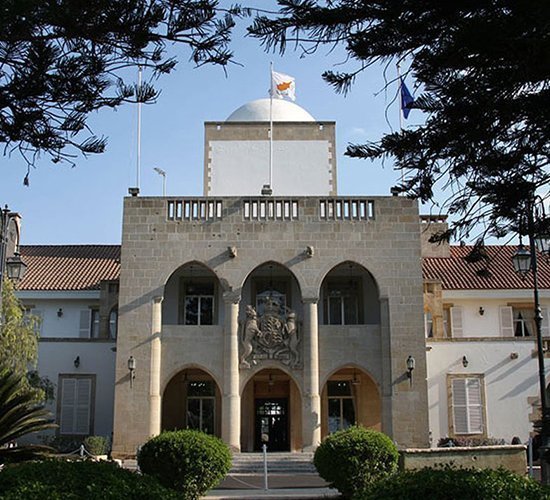
International Relations
Cyprus is a member of the European Union, the United Nations, the Council of Europe, the World Trade Organizations, the Commonwealth, the World Bank, and the International Monetary Fund.
Cyprus is represented through diplomatic missions in over 30 countries. Moreover, Cyprus has particularly good relations with the Mediterranean countries, the Middle East Region, as well as other developing countries.
“Cyprus ranks among the first countries in the world in terms of University degree holders, with 70% of secondary school graduates proceeding to tertiary education.”
